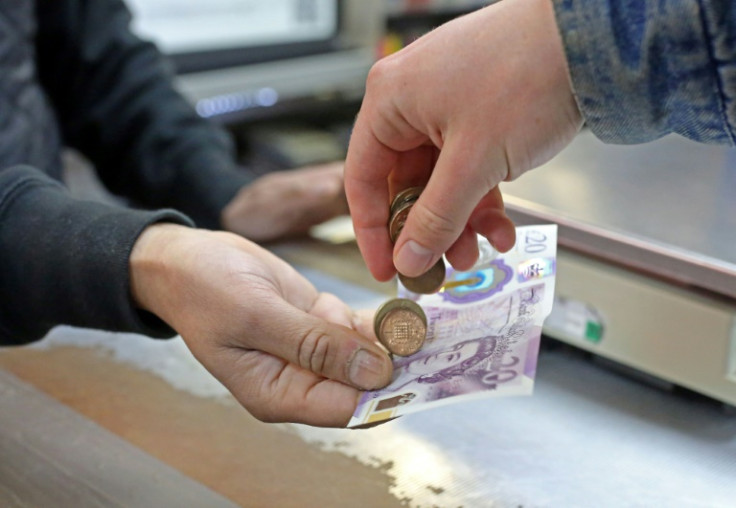UK Economy Falters On Cost-of-living Crisis

UK private-sector growth has slowed to a three-month low as soaring interest rates and stubbornly high inflation fuelled by rising food prices worsens a cost-of-living crisis, data showed Friday.
It comes as the UK government announced help for homeowners after seeing mortgage costs surge in the wake of rising interest rates.
Figures on Friday highlighted Britain's economic struggles, heaping more pressure on Prime Minister Rishi Sunak.
The closely-followed S&P Global/CIPS flash UK purchasing managers' index declined to 52.8 in June from 54 in May. A reading above 50 indicates growth.
"June's flash PMI survey indicates that the UK economy has lost momentum again after a brief growth spurt in the spring and looks set to weaken further in the months ahead," Chris Williamson, chief business economist at S&P Global Market Intelligence, said in a statement.
"Most notably, consumer spending on services, which was a core growth driver in the spring, is now showing signs of faltering."
Williamson said this was "as the reality of higher interest rates, the increased cost-of-living and gloom about the outlook sets in and overrides the brief boost to spending".
Official data this week showed UK annual inflation at 8.7 percent in May, unchanged from April, causing the Bank of England (BoE) on Thursday to hike its key interest rate by a larger-than-expected amount.
The half-point lift to a 15-year peak of five percent was the 13th increase in a row.
Economists are predicting rates could hit six percent this year, which could see the UK follow the eurozone into recession.
Separate data Friday showed UK retail sales growth slowed in May as soaring food prices hit shoppers hard.
Total retail sales by volume rose 0.3 percent after climbing 0.5 percent in April, the Office for National Statistics said in a statement.
Food stores sales dropped 0.5 percent in May, with retailers indicating "that increased cost-of-living and food prices continued to affect sales volumes", the ONS added.
Shops were impacted also by "some anecdotal evidence of increased spending on takeaways and fast food" owing to an extra public holiday last month for the coronation of King Charles III.
Overall sales climbed thanks to cheaper fuel and demand for summer clothing and outdoor goods, the ONS noted.
Annual food price inflation was close to a record-high of 18.4 percent in May, official UK data showed this week.
The UK housing market was also in sharp focus.
Finance minister Jeremy Hunt on Friday agreed support measures with major UK mortgage lenders for struggling customers, including those in arrears.
This included a 12-month minimum period before repossessing homes.
Millions of Britons who have home loans are particularly affected by the BoE rate hikes, which tend to be mirrored by commercial lenders.
On food, Sunak Thursday acknowledged that households' weekly shopping bills had "gone up far too much in the past few months".
"We're looking at the supermarkets, making sure that they're behaving responsibly and fairly when it comes to pricing all those products, to make sure that we're easing the burdens," he added.
© Copyright AFP 2024. All rights reserved.







